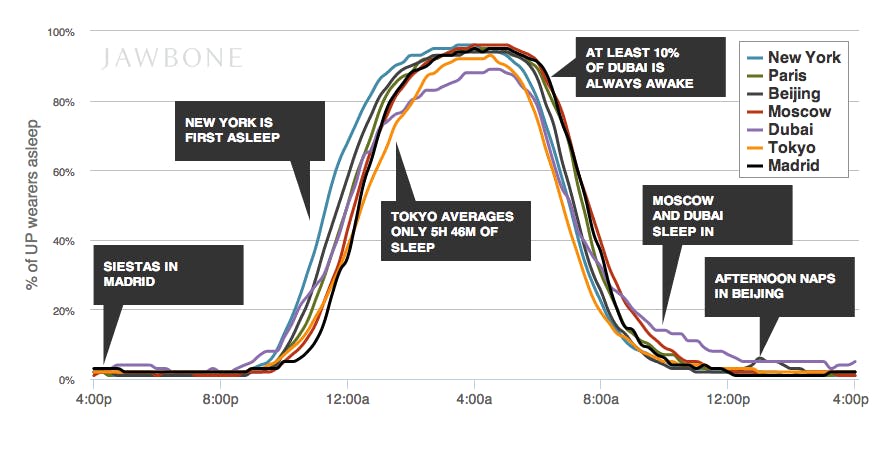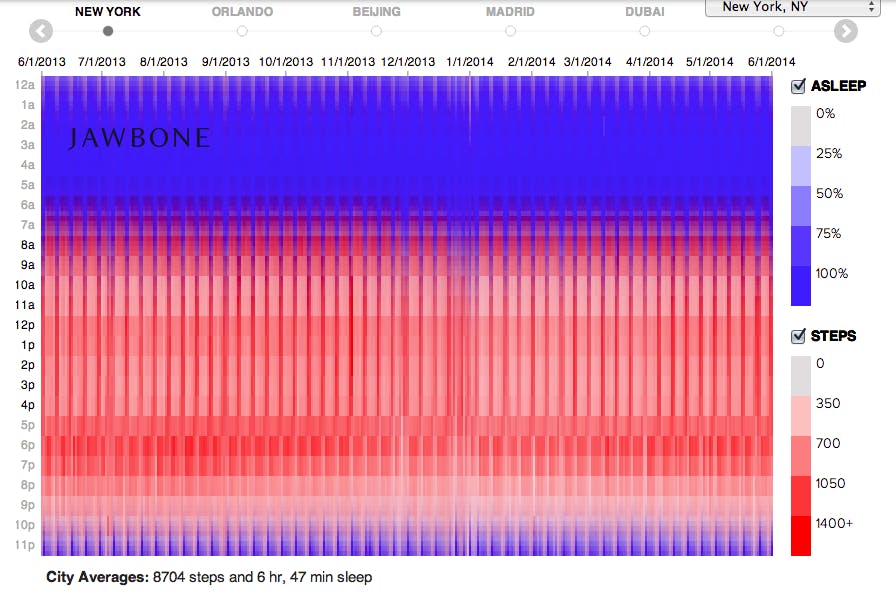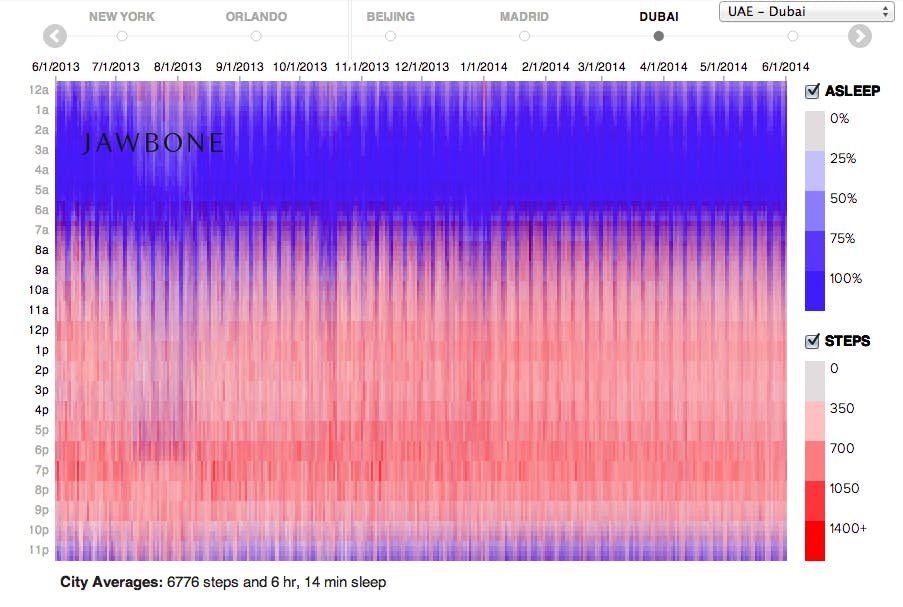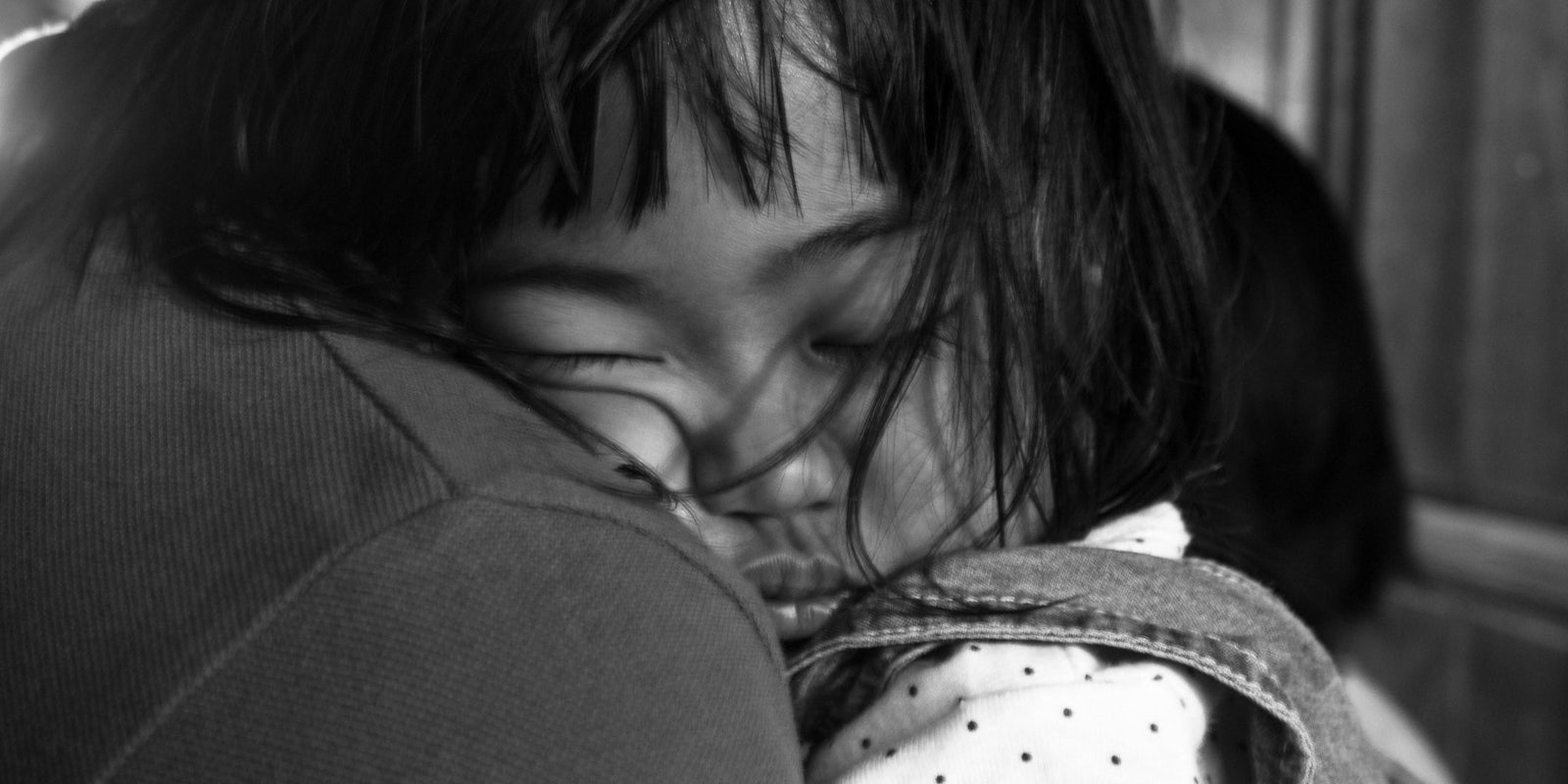It’s not just you—we are all sleep deprived. At least, according to some data gathered by the makers of the fitness device UP. The company pulled together the steps taken and the hours slept by their users in major cities around the globe.
Tokyo, Japan residents get the least amount of sleep, with just 5 hours and 44 minutes of zzz’s on average. But it doesn’t get much better: Melbourne-dwelling Aussies slumber for only 6 hours and 58 minutes on average. That’s still not the 8 hours of uninterrupted sleep we need.
Jawbone, the maker of the device, notes how all this data was collected in a blog post by data scientists Brian Wilt:
“UP by Jawbone sleep tracking records not only bedtime and waketime, but also time to fall asleep, awakenings, and sleep quality. The average hours of sleep cited above do not include time awake in bed. Thus, even though Moscow average bedtime and waketime are 12:46am and 8:08am respectively, a difference of 7hr 22min, they only average 6hr 42min of sleep a night.”
The post also includes some great interactive data visualization.

Take some time to explore the graphics for different cities and you can learn neat tidbits. For example, “In Beijing, it’s culturally acceptable to take a nap in the afternoon at work, and you can see that roughly 5% of UP wearers do so. Also of note are major changes to their sleep schedule for Chinese New Year after January 31 and Chinese National Day in early October,” Jawbone explains.

New York shows tightly regimented differences between weekend and weekdays—the stripe effect is more boldly etched.

Dubai’s patterns look very different. There, approximately 10 percent of the tracker wearers are up at any time, even in the wee hours of the night, a pattern that reflects a high proportion of night shift workers. Also, the effects of Ramadan are visible as a month-long disruption in sleep patterns as people stay up later to break their daytime fast.

So, does the early to bed early to rise (yet comparatively longer sleeping time) of Melbourne appeal to you? Or do you prefer the siestas of Madrid and Beijing? Seems like data like this could help you choose the culture that matches your own daily rhythms. Or you can revel in your contrariness.
H/T io9.com | Photo by Georgie Pauwels/Flickr.com (CC BY 2.0)
